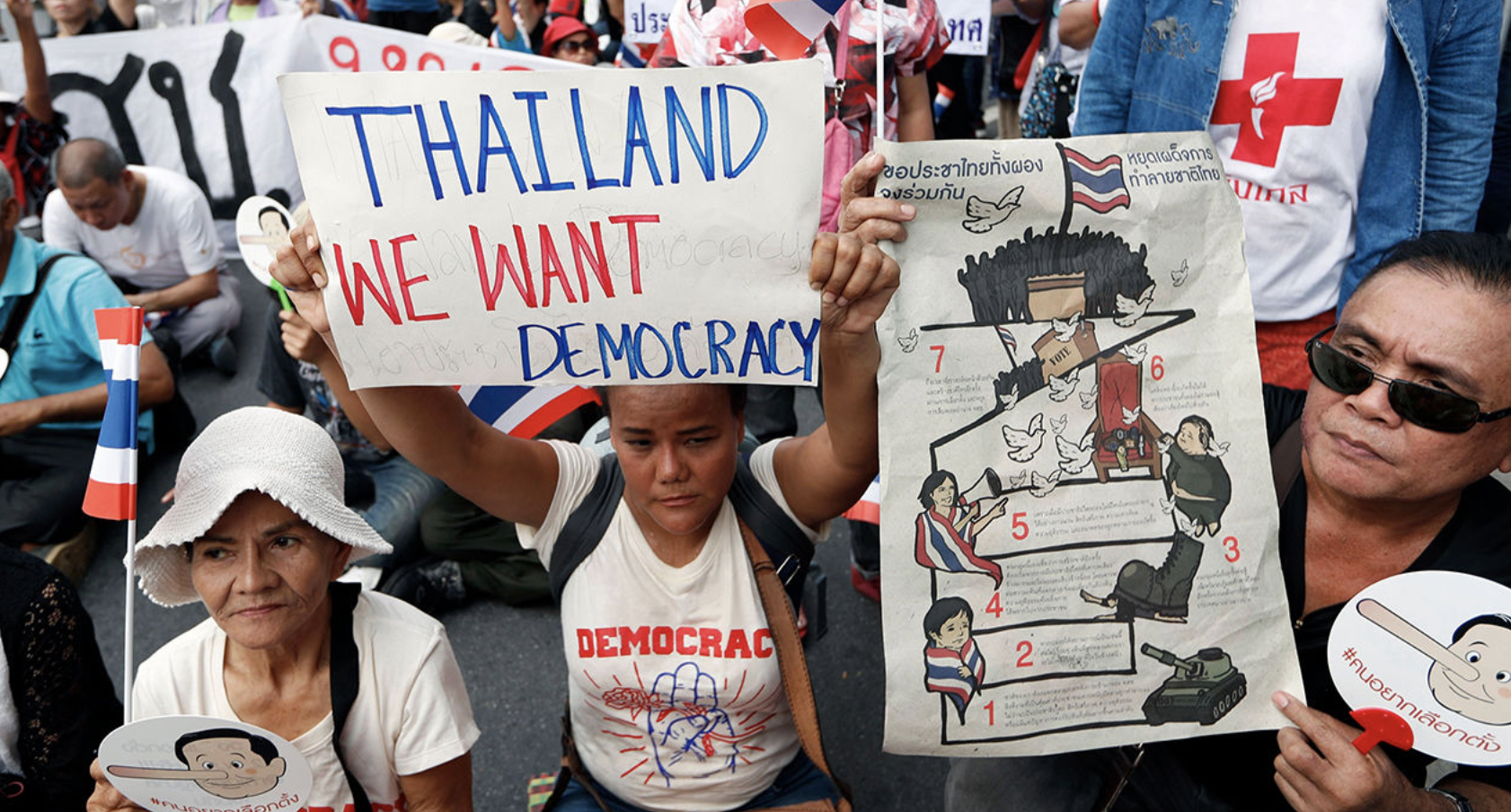ROBERT BORN WRITES– Sunday, March 24, marked the first time in five years that the Thai government allowed an election years after promising one.
In 2014, a military coup removed the government of former Prime Minister Thaksin Shinawatra’s party–then headed by Prime Minister Yingluck Shinawatra. Since then, the military junta has controlled the Thai government, slowly limiting democracy and the ability for their citizens to participate in elections and express their freedom of speech.
As of Sunday, Paland Pracherat, the military-backed party, has about 97 seats, and Pheu Thai Party, backed by former Prime Minister Thaksin Shinawatra has 97 seats, with the Pro-democracy party Future Forward receiving 30 seats. The Palang Pracharat inched ahead in the popular vote with 7.69 million votes, while the Pheu Thai Party received 7.2 million votes.
These results appear to suggest that it is out with the old and in with the new, as the decisive question most Thai people are asking is “Do we keep the military junta for stability and security or opt for democracy and freedom?” With poor results showing for the Pheu Thai Party and more young people voting for the Future Forward Party, it seems as if many Thai people, especially young people want something new, and that is a democracy. But only time and the access to election results will determine which party comes to power and if the military junta will retain it.
While millions of Thai people are expected to come out and vote, many of which choosing to cast early-voting ballots, their long-awaited vote is already being suppressed by the current military regime, citing obstructions as necessities to free and fair elections. Months before this election, the military junta lifted the ban against public assemblies and gatherings, however criticizing the government in any capacity is still subject to severe scrutinization.
Last Year, 14 pro-democracy activists were arrested and prosecuted for peacefully protesting the military junta for not holding elections as promised back in 2015. Since then, hundreds of more activists have been arrested.
The current constitution, created in 2016 by the military, severely limits the will of the people and creates obstacles for parties rallying against the military regime. Under this doctrine, the upper chamber of parliament (Senate) is picked entirely by a selection committee, with Prime Minister Prayuth Chan-Ocha holding the final word. The Constitution also says that the Prime Minister does not have to be affiliated with any party nor a member of parliament, allowing the junta leader, Chan-Ocha, to stay in power.
Alternatively, in the lower chamber (House), where the people pick members, the military junta has taken measures to reduce the power of the former populous Thaksin-backed party by limiting the number of seats the party can secure.
With the current constitution and many provisions within it to help Chan-Ocha remain in power, the international community should be wary of these alleged ‘free and fair’ elections in Thailand. Monitoring the situation in Thailand might prove to be a challenge as the current government has already limited free speech, criminalized government criticism, and censored its media.
Thailand has proven to be politically unstable as there have been 20 new constitutions created in modern Thai times and 13 military coups. Multiple international organizations, including the Human Rights Watch, have repeatedly condemned the lack of democracy and freedom of speech in Thailand.
“Since the 2014 coup, the Thai military has made repeated promises to restore democratic rule, but the generals have set up this election to ensure continued military rule in suits instead of uniforms,” Brad Adams, Asia Director for the Human Rights Watch said. He adds, “The junta has kept repressive laws, dissolved the main opposition party, taken control of the electoral commission, and handpicked a Senate with the power to thwart the will of the Thai people.”

